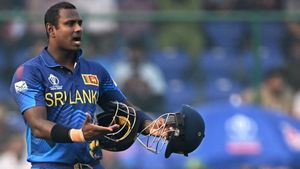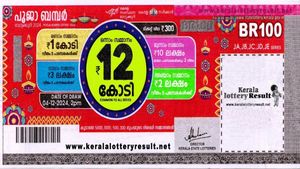The Mangolpuri Assembly constituency results have confirmed a significant shift in Delhi's political paradigm as BJP's Raj Kumar Chauhan emerges victorious over AAP's Dharam Rakshak alias Rakesh Jatav, winning the seat by over 6,000 votes.
The polls held on February 5, 2025, set the stage for this contest, where Chauhan's win reflects the mounting pressure on the Aam Aadmi Party (AAP), which had dominated the constituency for years. The seat had been firmly held by AAP's Rakhi Birla, who previously captured victories in both the 2015 and 2020 elections with considerable margins.
Chauhan's triumph, reported on Saturday afternoon following the counting of votes on February 8, 2025, positions the BJP strategically as it attempts to consolidate its influence within Delhi, especially after facing repeated defeats. The voter turnout for these elections was expected to mirror the heightened interest following the intense campaigning strategies used by all parties involved.
This election brought forward three major candidates: Raj Kumar Chauhan from BJP, Rakesh Jatav from AAP, and Hanuman Sahay alias Hanuman Chauhan from the Congress party. AAP aimed to protect its winning streak by nominating Jatav, who was tasked with upholding the party's legacy of success, particularly after Birla's commendable performances.
Rakhi Birla's previous margins—a victory of 30,116 votes against BJP’s Karam Singh Karma in the 2020 elections—had positioned her as a formidable figure within the constituency. But, the BJP sensed opportunity this time, even revamping their strategies to penetrate deeply fortified AAP strongholds.
The significance of Chauhan's win is underscored by the trend observed not just locally but throughout Delhi, where the results may indicate shifting voter sentiments. This constituency has historically had its ups and downs; notable is the fact between 1998 and 2013, the Congress party ruled Delhi, only to be disrupted by AAP’s rise.
AAP’s Rakhi Birla had previously garnered 74,154 votes compared to Karma's 44,038, which indicated not only AAP's popularity but also the battleground's complexity where both Congress and BJP have been fishing for votes. The last candidate standing, Hanuman Chauhan from Congress, remains largely overshadowed but exemplifies the extreme competition all parties are enduring.
BJP had fielded Chauhan, who acquitted himself favorably during campaign engagements, likely appealing to the voters disenchanted with the incumbent AAP government. CPC's efforts to regain their footing through Hanuman Chauhan signify enduring echoes of confidence, even if the results didn't reflect it this time.
The 2025 Delhi Assembly elections saw the overall vote counting begin on February 8, leading to suspense as early trends indicated BJP was pulling slightly ahead of AAP. Often, Mangolpuri has been seen as reflective of state-level dynamics and could be pivotal moving forward.
According to reports from the counting processes, BJP's Raj Kumar Chauhan secured 42,053 votes, highlighting AAP's slipping grip as their candidate, Rakesh Jatav, claimed 35,798 votes. This 6,255 vote difference starkly demonstrates the pressure mounting on AAP as they grappled with retention amid aspirations of both Congress and BJP。
The outcome here unveils the shifting loyalties among the electorate, solidifying BJP's foothold contrary to AAP's previously unprecedented dominance. This electoral reconfiguration becomes evident as larger patterns of voting behavior evolve, impacting potential coalitions and political alignments heading toward future elections.
Dominated by AAP for nearly the last decade, the Mangolpuri results now compel the party strategists to introspect and recalibrate their party strategies. This time, the BJP’s victory not only shakes the interpretation of their campaign viability but also hints at voter fatigue against longstanding incumbents, stirring hopes for opposition parties.
Analysts suggest this might change the face of politics not only within Mangolpuri but across similar constituencies reflecting once more the inherent volatility of Delhi politics.
The results of the Mangolpuri Assembly constituency certainly add to the narrative of shifting political tides within Delhi, giving rise to questions of what lies ahead for the parties involved and how they will navigate such electoral challenges.



